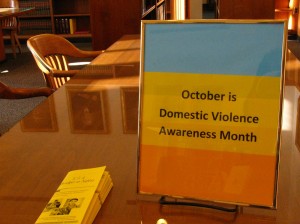![file000264450357[1]](https://ramseylawlibrary.org/wp-content/uploads/2013/11/file0002644503571-300x225.jpg) The New York Times has reported on the death last week of former paralegal Merrell Williams Jr. Though lacking the star quality of an Erin Brockovich, Mr. Williams is best remembered as the paralegal who smuggled documents from his document review project revealing the health risks and addictive properties of smoking. These documents ultimately lead to the $246 billion settlement in 1998 against the country’s four largest tobacco companies. One could say Williams was the hero from which this and all subsequent tobacco settlements flowed. One could also say that his actions represented the ultimate violation of attorney-client privilege.
The New York Times has reported on the death last week of former paralegal Merrell Williams Jr. Though lacking the star quality of an Erin Brockovich, Mr. Williams is best remembered as the paralegal who smuggled documents from his document review project revealing the health risks and addictive properties of smoking. These documents ultimately lead to the $246 billion settlement in 1998 against the country’s four largest tobacco companies. One could say Williams was the hero from which this and all subsequent tobacco settlements flowed. One could also say that his actions represented the ultimate violation of attorney-client privilege.
Williams became a $9/hr paralegal with Louisville, KY firm Wyatt, Tarrant & Combs in 1988. In this position he was tasked to review documents on behalf of then-cigarette manufacturer Brown & Williamson for their product liability defense. Now, Williams’ ultimate deed was not a single accidental “oops” committed by some poor stressed and overworked document reviewer… His activities took place over years, and involved smuggling thousands of pages of documents out of the office beneath a rubber corset and taking them to various late-night copy shops before returning them to the firm the next morning. Both before and after the firm discharged him in 1992, Williams sought to interest law enforcement and tobacco industry opponents in his huge copy stash (which ultimately wound up in the hands of the Mississippi Attorney General and the centerpiece of tobacco litigation). Mr. Williams also apparently accepted gifts and a “job” (attendance optional) from the lead lawyer against the tobacco industry. He may have been rather susceptible to monetary rewards, considering as he held a Ph.D. in theater arts, was in the middle of his third divorce, behind in his child support, and had declared bankruptcy four times. Williams himself had been a longtime smoker of Kool cigarettes, but supposedly quit as a result of reading the “smoking documents” (pun intended). However you see choose to see him, Williams’ actions were instrumental in how our society has come to view the tobacco industry, and smoking in general. Read more about Mr. Williams’ eye-popping story here and here.

![file7411252893790[2]](https://ramseylawlibrary.org/wp-content/uploads/2013/11/file74112528937902-150x150.jpg)

![tvisa-cover_for_web[1]](https://ramseylawlibrary.org/wp-content/uploads/2013/10/tvisa-cover_for_web1-150x150.jpg)


![Cleary_Edward_-_Preferred_-_resized[1]](https://ramseylawlibrary.org/wp-content/uploads/2013/09/Cleary_Edward_-_Preferred_-_resized1.jpg)
![20130914__130915Fetsch[1]](https://ramseylawlibrary.org/wp-content/uploads/2013/09/20130914__130915Fetsch1-150x150.jpg)
